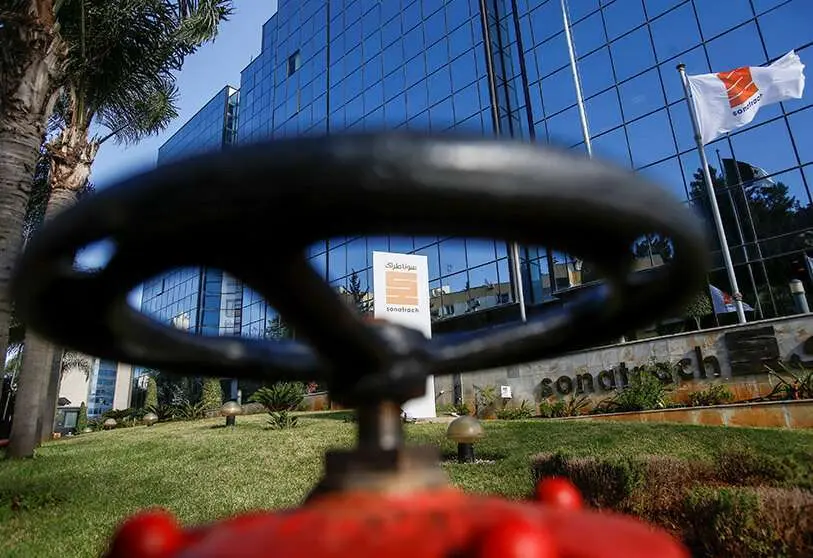Algeria closes the Maghreb/Europe pipeline: a strategic mistake that will have consequences

Algeria's unilateral closure of the Maghreb/Europe gas pipeline is a strategic mistake that will have disastrous consequences for the North African country and the entire region if it is not corrected quickly and without palliation.
In strategic, military and political matters, one should not take hasty decisions if one does not have the means to implement them and deal with the consequences.
The Algerian regime has taken two important strategic decisions in the space of a few months: the first was to unilaterally sever diplomatic, economic, cooperation and security relations with Morocco; the second was to close the Maghreb/Europe gas pipeline, which transported 6 billion cubic metres of gas from the Hassi R'Mel fields to Spain via Morocco.
Both strategic decisions were taken by the Algerian High Security Council, a military body that has gone from being a consultative body to an executive body, and to which the President of the Republic, the Ministers of the Interior and Foreign Affairs, and the heads of security are associated without the right of veto.
The two decisions had the same objective: to strike a political, diplomatic and economic blow against Morocco's neighbour, which is accused, without any hard evidence, of attacking Algeria's sovereign interests, of financing and supporting political groups that Algiers describes as "terrorist" (the Kabil MAK Autonomy Movement and the opposition Rachad movement), of having caused the "criminal fires" that ravaged the country this summer, and of having indirectly organised the lynching of the young Kabil Djamel Bensmain.
However, there is a notable difference between the two decisions taken by the High Security Council. The first, the severing of relations with Morocco, Algiers can take on board and deal with its consequences by mobilising its support networks and lobbying around the world, in friendly and allied countries, and in multinational organisations, the European Union, the African Union and the UN in particular.
Algeria, on the other hand, will not be able to confront the latter. The gas supply agreements signed with Spain, Portugal and the European Union will not be honoured. The only "alternative plan" put forward by Algiers to compensate for the 6 billion cubic metres of the Maghreb/Europe gas pipeline is to increase the transport capacity of the MEDGAZ, which currently brings some 8 billion cubic metres to Spain and which could, after technical modifications and an injection of millions of euros, increase its flow by a maximum of 2 billion cubic metres. The other leg of the "alternative plan" consists of increasing the transport of liquid gas by methane tankers, which currently amounts to 1 billion cubic metres, and which under no circumstances could exceed a further 1 billion cubic metres. This is in terms of the damage caused to Spain/Portugal/European Union by the decision.
But where the Algerian strategic point really misses the mark is in the objective pursued. Morocco will be affected in the first instance, as everything indicates that Moroccan strategists had not contemplated this scenario as suicidal and unrealistic. The industry that draws its energy supply from the 800 million cubic metres of gas that the pipeline left behind as it passed through Morocco has no immediate alternative. Algerian gas" provided Morocco with 10% of its electricity production.
As for the non-revenue of the $100 million per year on average that remained in Morocco as a result of the 1996 agreement, it will be amply compensated by Morocco's Arab allies. Algiers has failed to read the message that Saudi Arabia, Qatar, Bahrain, Kuwait and Jordan have sent at the United Nations by supporting Morocco in the Western Sahara conflict and the "sovereignty of its southern provinces".
Moreover, Morocco's medium- and long-term plans in the energy sector will not only compensate for the blow dealt by Algeria but will allow Morocco to export energy to the EU, Britain and neighbouring African countries.
The most striking aspect of Algeria's "strategic error" is that its main ally on the international stage, Russia, a member of the Security Council, is building a petrochemical complex near Nador, on the outskirts of Melilla, with an investment of 2 billion dollars, capable of refining some 100,000 barrels of crude oil per day that will arrive via the oil terminal of the Nador West Med mega-port currently under construction.
If the decision to "definitively close" the Maghreb/Europe pipeline is not reversed in the short term, the repercussions will be very negative for Algeria and the entire Maghreb. The objective of the Arab Maghreb Union, already achieved in 1989 but in deep slumber, has also been definitively buried. And this despite Spain's and Europe's passivity towards its Algerian neighbour.

